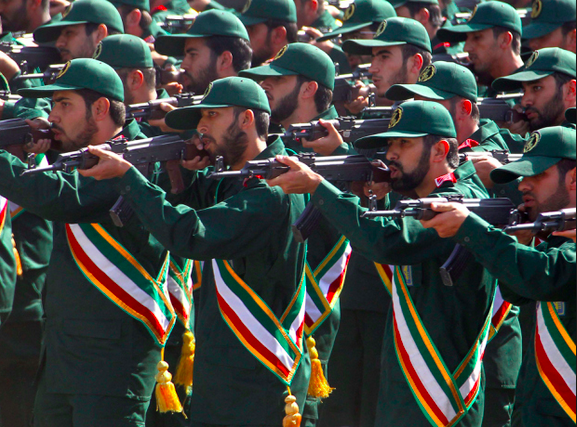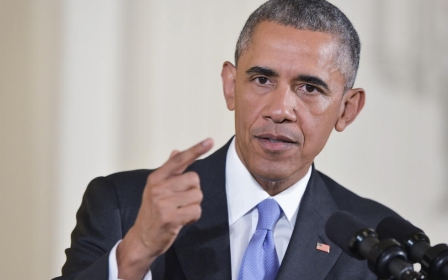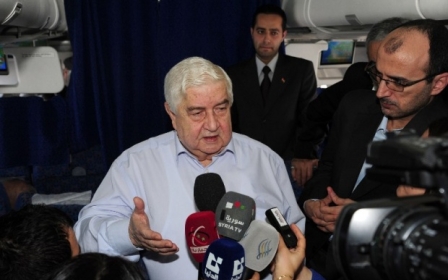Iran hardliners mobilise against nuclear deal

While much of the focus on the opposition to the Joint Comprehensive Plan of Action (JCPA) agreed in Vienna last week has centred on Washington, there is an equally vocal (if less effective) opposition lobby in Tehran.
As key stakeholders in Iran analyse every facet of the JCPA and its potential ramifications, there is a growing realisation of the drawbacks of the deal and its potentially negative impact on other aspects of Iranian foreign policy.
Whilst stiff opposition is, for now, confined to hardline factions, nevertheless many influential types in Tehran are not entirely convinced by President Hassan Rouhani’s comparison of the JCPA to a football match in which Iran scores three goals to her opponents’ two.
The danger to Rouhani is not the rejection of the deal either by the US Congress or the hardliners in Tehran, but that the JCPA’s implementation is fraught with uncertainty and difficulty, thus giving his domestic opponents ample ammunition to undermine and potentially derail his government.
IRGC versus Rouhani
In Iran, the most formidable opponents of the JCPA are the Islamic Revolutionary Guards Corps (IRGC), who indirectly own and operate a sizeable chunk of the country’s nuclear infrastructure.
Moreover, the IRGC - also known as the Pasdaran - is in charge of the Islamic Republic’s strategic military assets, in particular the country’s relatively advanced ballistic missiles force, and is thus severely affected by the continuation of arms-related sanctions as envisioned by the JCPA.
Although the IRGC provided guarded support to Iranian diplomats throughout the marathon negotiation process, there is little disguising the Pasdaran high command’s displeasure at the outcome.
In fact, IRGC commander Major-General Mohammad Ali Jaafari surprised the Tehran political elite at the beginning of the week when he set out his opposition to the JCPA on the eve of the UN Security Council’s ratification of the same.
Jaafari is not only speaking on behalf of the IRGC by his claims that “red lines” have been breached by the JCPA. He is echoing fears by the entire Iranian security establishment that significant concessions have not been matched by credible rewards from the Western powers.
These fears are not without foundation, as evidenced by the massive restrictions placed on the Iranian nuclear industry. Even though the JCPA leaves much of the Iranian nuclear infrastructure intact, nevertheless Iran is forced to remove more than 90 percent of its uranium stockpile in addition to dismantling most of its centrifuges.
The long time frame envisaged for these restrictions - at least 15 years - reinforces IRGC fears that hard-won experience and expertise may be lost during this interregnum.
Additionally, the JCPA’s envisaging of inspection of military sites, coupled with the refusal to provide sanctions relief in the arms sector, has clearly rattled the IRGC and the broader military and security establishment, who feel that the deal has militarily diminished the Islamic Republic.
Furthermore, the Pasdaran is worried by the precedent set by the JCPA and its potential replication in other fields of foreign policy. Whilst not necessarily opposed to dialogue with the United States in principle, Pasdaran commanders clearly want to negotiate with the US from a position of resolution and strength.
It appears that the dominant view in the IRGC is that the JCPA was effectively imposed on Iran owing to the latter’s weakness and increasingly desperate quest to obtain sanctions relief.
Majlis versus Congress
On their own, the IRGC cannot effectively disrupt the implementation of the JCPA let alone stop its full acceptance by September. To be able to effectively challenge key aspects of the JCPA during the long implementation phase, the Pasdaran will need strong and sustainable support from a critical mass of the political class.
Unlike in the United States, where Congress has the authority to ratify or reject the deal by the middle of September, no such clear role is envisaged for the Iranian equivalent, the Majlis.
Lack of unequivocal legal authority notwithstanding, some Iranian parliamentarians clearly aspire to play a leading role in the process by effectively imitating the US Congress. This position was forcefully set out by leading parliamentarian Mohammad Reza Mohseni Sani, who has called on fellow MPs to closely examine the JCPA with a view to vetoing objectionable clauses.
In terms of formal ratification of international treaties, the decisive institution in the Iranian system is the Supreme National Security Council (SNSC), whose effective head is the incumbent president.
Whilst the IRGC-led security establishment wields significant clout in the SNSC, crucially in terms of decision-making, they are not in a monopolistic position. This makes the rejection of the JCPA unlikely.
This leaves opponents of the JCPA in the Majlis with little option other than to persistently flag up the deal’s weaknesses and to keep up the pressure on the government to resist demands by the International Atomic Energy Agency to inspect military-related sites.
Ultimately, in order to seriously threaten the JCPA, the IRGC high command and its allies in the Majlis and beyond will need to change Ayatollah Khamenei’s position on the nuclear deal.
Hitherto, the Iranian leader has expressed lukewarm support for the JCPA in a manner that creates ample space for JCPA opponents to articulate their concerns short of actually derailing the deal.
Ayatollah Khamenei’s tough speech earlier this week, in which he ruled out a dramatic transformation of Iranian-US relations, was as much a warning to President Rouhani’s foreign policy team, as it was a morale boost to the Islamic Republic’s grassroots.
The JCPA has already proved to be a landmark moment in the history of the Islamic Republic. The Iranian leadership will abide by its terms so long as it is strictly limited to the nuclear sphere and does not intensify to the point where it threatens the Islamic Republic’s strategic profile as an opponent of the West in the Middle East.
- Mahan Abedin is an analyst of Iranian politics. He is the director of the research group Dysart Consulting.
The views expressed in this article belong to the author and do not necessarily reflect the editorial policy of Middle East Eye.
Photo Credit: The elite Iranian Revolutionary Guards march in 2013 (AFP).
New MEE newsletter: Jerusalem Dispatch
Sign up to get the latest insights and analysis on Israel-Palestine, alongside Turkey Unpacked and other MEE newsletters
Middle East Eye delivers independent and unrivalled coverage and analysis of the Middle East, North Africa and beyond. To learn more about republishing this content and the associated fees, please fill out this form. More about MEE can be found here.





